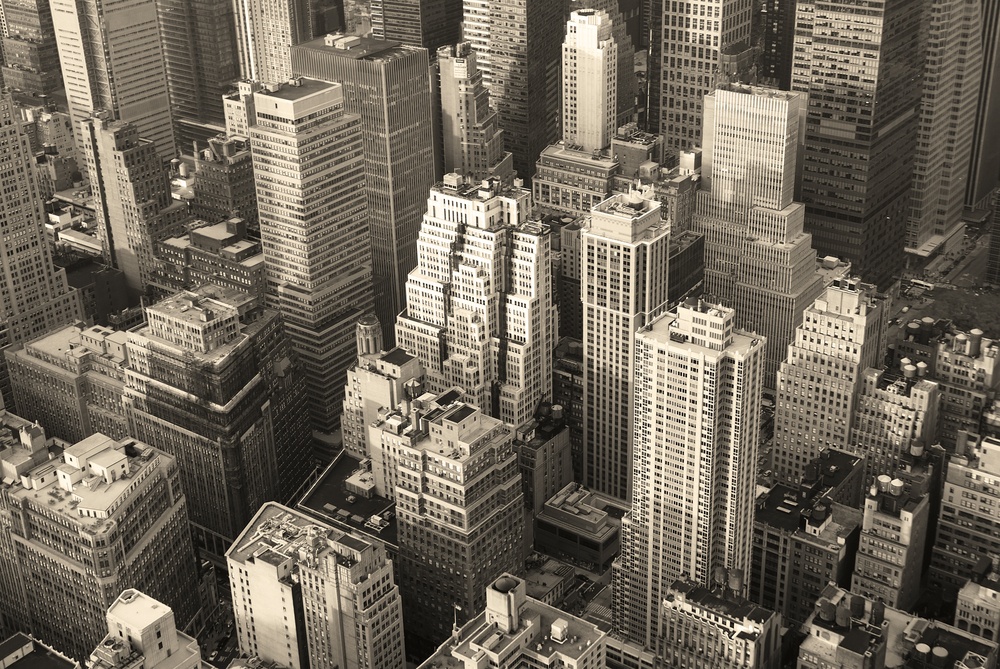New York Nears Financial Ruin as Debt Balloons Over $80,000 per Household

Economic experts have warned that New York City is headed for bankruptcy. | Source: Shutterstock
As public spending and debt levels in New York rise its wealthy and businesses leave, sick of high taxes. New York sits on the edge of bankruptcy. Experts warn that further exits or a national recession could push the city over the edge into all-out financial ruin.
High Debt, High Tax, and High Spending…and Taxpayers are Running
Citing economic experts, the New York Post report puts long-term debt at an average of $81,100 per household. New York City and the wider state of New York are top of the list for US tax burdens. The city’s mayor plans to spend $3 billion more in his 2020 budget than the near $90 billion of this year. Taxpayers and businesses alike are exiting the city, tired of rising property and federal taxation, in search of lower taxes available in other US states.
Vested’s chief economist, Milton Ezrati, says:
“The city is running a deficit and could be in a real difficult spot if we had a recession, or a further flight of individuals because of tax reform”
A single “setback” would put New York City in an “impossible situation” says Ezrati.
He’s echoed by another economist, Peter C. Earle, of the American Institute for Economic Research:
“New York City could go bankrupt, absolutely.”
The Rich Could Leave New York in Bankruptcy
Just days ago, the 2019 Douglas Elliman Knight Frank City Wealth Index Report dropped New York from being the most popular city for the world’s rich to make their homes. Even with Brexit looming, London has regained the top spot. San Francisco and Chicago also dropped out of the top five.
With the top 1% of New York’s earners contributing 50% of the city’s income tax revenue, the rich are key to its survival.
In January United Van Lines published its “National Movers Study,” that research found 61.5% of movement was those leaving the state. Only 38.5% of people moving home, moved to NYC. Of those leaving 41% earned over $150,000. Between 2010 and the middle of 2017 migration out of New York superseded migration into New York by 1 million.
New York governor Andrew Cuomo is fighting federal tax policy and the threat of increased taxes to the wealthiest US citizens. In February he said:
“I don’t believe raising taxes on the rich…That would be the worst thing to do. You would just expand the shortfall. God forbid if the rich leave.”
Cuomo referred to the shortfall of income tax announced that week, $2.3 billion below expectations in spite of increased spending. He described that loss thus:
“That’s as serious as a heart attack.”
The deficit for state funding in January was 3%, Cuomo blames the new federal tax which limits state income tax deductions to $10,000. As well as stock market downsides.
A Recession is a Real Threat
Early 2019 cries of a recession were dampened by stock market gains. Investors seemed buoyant on trade resolutions and impervious to the longest government shutdown in history. Global economic indicators increasingly point to a slowdown. But, the US stock markets recouped some of the losses of late 2018. Until now.
Last week the US stock market realized its worst week of 2019, with the Dow Jones posting five straight days of losses.
February’s job report exacerbated fears of recession once again. Analysts are also watching a slowdown in housing activity with the resale market in December hitting its lowest level for three years.
The US economy grew by 2.6% in the last quarter of 2018 but fell back against the previous quarter. Experts, and the city of New York under threat of bankruptcy, are waiting for new economic indicators. They are watching US stock market performance and quarter one 2019 growth results with bated breath.